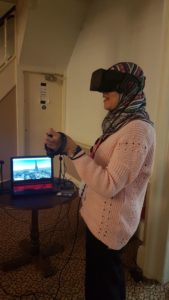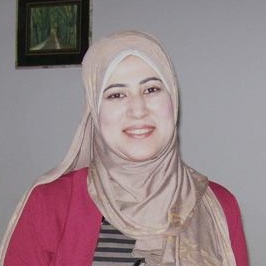 COVID education: a window of hope or the writing on the wall?
COVID education: a window of hope or the writing on the wall?
Ayat Tawel
As the third most populous country in Africa with a rising population of over 100 million people, Egypt is facing many challenges that are not unique to Egypt but also apply to many other developing countries, and which can help identify common solutions. Quality education is one of the main challenges Egypt has been facing for a long time, which can be the key to reducing poverty and fostering social and economic development. Lack of quality education increases the risk that young people might be deprived of an education that meets the needs of the changing labour market. This has already resulted in a high percentage of unemployment in Egypt that is officially estimated at 10.31* but is generally considered to be significantly higher.
Some of the challenges facing the education system and directly affecting teachers in Egypt are:
Lack of school facilities
With the growing population and increasing number of students enrolling in schools – average class size of 45 and reaching up to 80 in some public schools – the investment in school facilities is very poor. Many of the public schools suffer from poor infrastructure and especially technological structure which is becoming a priority all over the world after the pandemic. Classes in some public schools are overcrowded to the extent that some students cannot find desks which is an evidence of poor facilities and lack of refurbishment and maintenance. Many schools don’t have a school library, science and computer labs or even decent office spaces for teachers.
Learning/Teaching for exams
For so many years, the focus of education in Egypt has been to pass the final exam to be able to move to the next year or graduate school or university. This placed a high value on exam grades which would decide a student’s future opportunities.
As a response to this heavy focus on exams, teachers who are required to follow the textbook as the main source of the exam started using teaching techniques that depend mainly on memorisation for the aim of long-term information retention. Rather than being engaged with the content of the lesson and encouraged to use critical thinking, students were directed towards rote learning and memorisation to be able to quickly recall the information in the final exam. This lack of engagement has turned the students into passive learners and had a negative impact on their motivation and the value they placed on education.
Quality and access to professional development
With lack of resources, teachers need to know what they can do with their limited resources and how to develop themselves professionally within the structure they have. If they are obliged to teach for the exam, finish the curriculum and make sure their students can retain information in the exam, how can they be creative and go beyond information retention? That’s one reason lack of teacher training and professional development is the biggest challenge facing teachers in Egypt. Researchers, authors, and teacher trainers are coming up with new tools and teaching techniques to help teachers develop and create a better learning experience for their students. However, without formal training opportunities, some teachers get lost and give up while those who are keen on their professional development, try independently to find out how to utilise these new tools in their classes. This can sometimes result in inconsistency in their teaching styles which might lead to frustration and lower job satisfaction. Teachers based in cities far from the capital or living in urban areas struggle to join any professional development events as most are held in big cities like Cairo or Alexandria, which is not convenient.
Before the list of challenges gets longer, I will shift now to looking into how these challenges have changed recently. While the corona virus pandemic has impacted the educational system in the whole world, its effect in developing countries was greater as they were not yet ready for new changes. So, let’s look at whether these changes are windows of hope or the writing on the wall for the educational system in Egypt.
Lack of school facilities
If we look at lack of refurbishment and maintenance as an example of poor infrastructure before COVID, we might think that suspending studies and closing schools for months made these challenges less important. However, as teachers were required to continue teaching online, other challenges such as the lack of communication and information technology infrastructure became a high priority post-COVID. Though the government had already made some efforts to digitalise Education in Egypt by launching the Egyptian Knowledge Bank (EKB) as a free source for educational materials, teachers knew very little about it until all school syllabuses were uploaded to it following the outbreak of COVID-19. So in spite of the fact that this step was a milestone to improve Egypt’s educational system, it had seen little progress as there was no clear strategy for students and teachers to follow.
Learning/Teaching for exams
In response to the pandemic and to minimise interaction between students during exams, a new examination system was introduced which required students to submit research papers based on what they have learnt in class or online. Unfortunately, neither students nor teachers were ready for this step as writing research papers was not one of the skills students usually learn at schools. Besides, the criteria for evaluating the students’ research papers were not clear to teachers. As there has always been a heavy focus on exams which can determine a student’s future, parents started writing and submitting the research papers for their kids . This resulted in kids not being evaluated accurately and teachers giving grades for work that doesn’t represent the student’s performance. In the long run, teachers will be filling in these gaps in education the following years and will still be expected to ensure quality!
Quality and access to professional development
Besides the open sources created by the government for all sectors of education such as the EKB and other platforms, many other organisations started offering free online events for teacher development. This made training opportunities more accessible and convenient for all teachers across all cities as they could join them from the comfort of their own places without having to commute or paying extra cost.
During the last year, some international associations such as IATEFL and TESOL organised many free events that covered a wide range of topics for teacher development. Nile Tesol is another teacher association in Egypt that has nine Special Interest Groups (SIGs) in all fields of teaching such as learning technology, teaching young learners, assessment, inclusive teaching, research, among others. Last year, Nile Tesol SIGs organised online monthly events on topics that addressed the needs of teachers in Egypt, taking into consideration the changes and challenges of the educational system pre- and post-COVID. The British Council and RELO have also contributed a lot to the development of teachers during this difficult time through many teacher development programs.
To wrap up, we all agree that COVID brought many challenges to education. But we should use COVID-19 challenges to pay more attention to the quality of education, continue to develop digital platforms and integrate sustainable education so we can improve the resilience of our education system and achieve sustainable development (Biltagy, 2021).
So, do you think COVID opened a window for hope or was just the writing on the wall?
*https://www.statista.com/statistics/377343/unemployment-rate-in-egypt/
Biltagy, M. (2021). How did Covid-19 Pandemic Impact Education in Egypt? Euro-Mediterranean economists association. https://euromed-economists.org/download/how-did-covid-19-pandemic-impact-education-in-egypt/

 The best part of that day was when we got the chance to experience virtual reality ourselves and go on virtual tours to different countries through the amazing VR set of Heike Philip (one of the speakers at that event, a renowned Ed Tech trainer who co-initiated some European projects and online events on the use of technology in education). You can see me going on a virtual tour in Paris in the photo.
The best part of that day was when we got the chance to experience virtual reality ourselves and go on virtual tours to different countries through the amazing VR set of Heike Philip (one of the speakers at that event, a renowned Ed Tech trainer who co-initiated some European projects and online events on the use of technology in education). You can see me going on a virtual tour in Paris in the photo.

 The last challenge I want to share with you is one we all come across, which is how to spend the summer holiday, without feeling bored and if we can get some professional development to refresh our experience without spending too much and at our own pace … whenever and however we can and want.
The last challenge I want to share with you is one we all come across, which is how to spend the summer holiday, without feeling bored and if we can get some professional development to refresh our experience without spending too much and at our own pace … whenever and however we can and want.